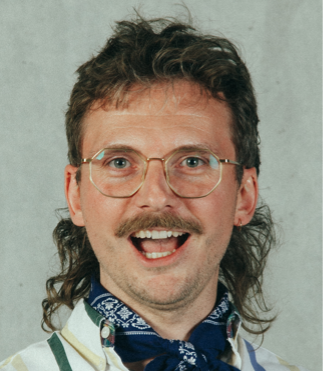Organic Chemistry in Water
We develop new methods for organic synthesis in water, both of relevance to the origins of life and novel catalytic transformations in water. As part of this effort, our group focuses on three main areas of research:
- Studying and developing visible light photocatalytic transformations of relevance in prebiotic chemistry and in the earliest lifeforms on Earth. This work is supported by an ERC Starting Grant.
- Designing and synthesizing molecularly imprinted polymers towards the development of novel classes of artificial enzymes and artificial antibodies.
- Studying prebiotically relevant reactions in water microdroplets that may have impacted the origins of life on Earth.
We encourage prospective group members (BSc to postdoc level) to join our weekly group meetings and reach out to Michael or other group members to enquire about our on-going projects and future goals.
For PhD students/postdocs
We were recently awarded an ERC Starting Grant (project acronym “BEYOND”) which will fund 5 years of research on prebiotic visible light photocatalysis. As part of this, we will be hiring several PhD students and at least one postdoc. Projects will be specified to each candidate during an early research plan which will be constructed via agreement between the PhD student/postdoc and the PI.
As senior lab members, PhD students and postdocs are expected to work in collaboration with the PI, but with a high degree of independence. PhD students will learn how to lead a project, help supervise undergraduate BSc/MSc students who may join their projects and report scientific findings for publication in international journals.
Postdocs are expected to work with higher degrees of independence and lead the trajectory of projects and help conceive new areas of research. We strive to create an environment where ambitious postdocs can work as independently as they desire whilst keeping within the overall goals of the lab. We believe this organizational foundation provides the best basis for training future scientific leaders. We aim to create an environment for free, creative and critical thinking and to lower the barriers for conducting research to have as high output as possible without compromising work/life balance.
For MSc/BSc-students
The choice of project depends on your interests and strengths, as each area offers unique challenges and opportunities to develop specific skills. If you are drawn to synthetic chemistry and mechanistic studies, you can design artificial enzymes using molecularly imprinted nanoparticles. If you prefer photocatalytic reaction development, projects involving prebiotic chemistry in water microdroplets could be a great fit.
Your project will be tailored to match your goals and help you grow as a researcher, and we aim to match incoming students with senior lab members who are involved in similar research to ensure effective day-to-day assistance in the lab.
Group members
Thor Borne Tancar (MSc, thesis project)
Christian Otterstrøm (MSc, thesis project)
Nikolaj Holst-Andersen (MSc, thesis project)
Sofie Isabella Hroarsdatter Skov (MSc, thesis project)
Halfdan Jepsen (MSc, research project)
Emilie Lykke Bech (BSc, thesis project)
Oskar Holmby (BSc, thesis project)
Kasper Theisen Honoré (BSc, thesis project)
Alumni
Christina Zhang (MSc, research project)
Mia Rizzo (MSc, research project)
Halfdan Jepsen (BSc, thesis project)
Michael earned his BSc (2016) and MSc (2019) from the University of Copenhagen. In 2021, he was awarded a PhD from the University of Copenhagen under the supervision of Prof. Christian Marcus Pedersen. After postdoctoral training with Prof. Eric N. Jacobsen at Harvard University (2021-2024), he returned to the University of Copenhagen in 2024 as a Carlsberg Reintegration Fellow to start his independent research career. In 2025, Michael was awarded an ERC Starting Grant to conduct a 5-year project studying the impact of visible light photocatalysis on the early Earth. As part of this project, Michael will be promoted to Assist. Prof. from April 2026.
Since 2024, Michael has been a lecturer in the first-year organic chemistry course “KemiOrg” for chemists, medicinal chemists and biochemists. Lecturing and teaching is one of Michael’s passions and for his teaching efforts, the students at the Department of Chemistry named him the Lecturer of the Year 2024/2025.
Outside the lab, Michael enjoys spending time with his family (wife + two kids) and friends, cooking, baking, exploring the exciting cultural scene in Copenhagen and following sports.
Awards and grants
- 2025, Nominated for “SCIENCE Teaching Award”, faculty of Science, University of Copenhagen.
- 2025, ERC Starting Grant (DKK 11.2M), starting April 2026.
- 2025, Lecturer of the Year, voted by students at the Department of Chemistry.
- 2024, Marie Curie Postdoctoral Fellowship (DKK 1.5M). Void after receiving ERC Starting Grant.
- 2023, Carlsberg Reintegration Fellowship (DKK 1.4M) for independent postdoc.
- 2022, 2022 PhD Prize by the Danish Chemical Society for best PhD thesis in organic chemistry.
- 2022, Certificate of Excellence, as one of the top 10 PhD theses at the University of Copenhagen.
- 2021, DFF International Post Doc (DKK 1.4M) for a postdoc at Harvard University.
- 2020, Gold Medal, University of Copenhagen, for best MSc thesis at the Faculty of Science.
- 2018, Best Teaching Assistant, voted by the students at the Department of Chemistry.
- 2017, Best BSc Thesis Prize by the Department of Chemistry, University of Copenhagen.
Contact

Michael Martin Nielsen
Carlsberg Reintegration Fellow
Office B312
Laboratory B319/B417
Phone: +45 53683130
mmn@chem.ku.dk
